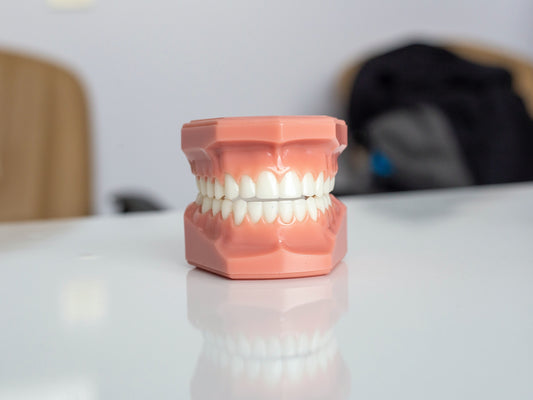Approximately 25 million workers in the United States are shift workers [1]. This means they work outside of the hours of 7am and 6pm. Shift workers may also work on a rotating schedule.
Among shift workers, a particular sleep issue known as Shift Work Sleep Disorder (SWSD) or Shift Work Disorder is common. Read on to learn more about this condition and find some tips on how you can manage it if changing your schedule isn’t an option.
What Is Shift Work Sleep Disorder?
Shift Work Sleep Disorder is a disorder that alters a person’s circadian rhythm [2]. Circadian rhythm is the natural, 24-hour internal clock that governs our sleep and wakefulness cycles [3].
Shift Work Disorder Symptoms
Shift Work Sleep Disorder is characterized by two main symptoms: insomnia and fatigue.
As a shift worker, you may find that you have a hard time falling asleep or staying asleep when you get home from work. This is especially likely if you get off for the day when the sun is up.

Because you’re not able to rest well when you’re off the clock, this can lead to increased tiredness and decreased alertness when you’re on the clock. You might constantly feel as if you need a nap, or you may find that you struggle to perform well and stay focused while working.
Risks of Shift Work Sleep Disorder
The occasional night of poor sleep isn’t that big of a deal and doesn’t come with a lot of long-term ramifications. However, if you’re a regular shift worker and develop Shift Work Sleep Disorder, you may increase your risk of certain health conditions, including the following:
Cardiovascular Disease
Some research suggests that, in the long-term, shift work can be bad for your cardiovascular system.
According to one research review, shift work has been shown to increase the risk of cardiovascular disease by 40 percent [4]. Another study showed that there was a 4 percent increase in stroke risk for every five years someone performed shift work [5].
Metabolic Syndrome
Metabolic syndrome is characterized by a variety of symptoms, including high blood pressure and blood sugar, high cholesterol, and obesity.
A 5-year study of 387 female Taiwanees workers found that shift work had a significant impact on the risk of metabolic health, even among generally healthy people [6]. At the end of the study, shift workers who originally had just one or two risk factors of metabolic disease were, respectively, 4.6 and 12.7 times more likely to develop it.
Diabetes
Shift work has also been linked to an increased risk of diabetes. The connection between rotating shift work and diabetes is particularly strong, with one study showing a 44 percent increase in chances of becoming diabetic [7].
Diabetes is often the result of shift work because shift workers tend to get less sleep than those who work regular hours. They also are more likely to have unhealthy eating habits and get less exercise.
Obesity
The increase in weight gain among shift workers has to do, in part, with imbalances in the hormone leptin [8]. Leptin is responsible for feelings of fullness, and leptin levels go down when we don’t sleep well, which may cause us to eat more than we normally would.
Depression
In addition to having an impact on physical health, shift work and Shift Work Sleep Disorder can also impact a person’s mental health.

Shift workers are more prone to depression than those who work regular shifts, likely because of issues like poor sleep habits, a lack of daytime sunlight, and a lack of exercise. One study even showed a 42 percent increase in depression among shift workers [9].
GI Disorders
Gastrointestinal issues are common among folks with Shift Work Sleep Disorder, too. Conditions like gastroesophageal reflux disease (or GERD), as well as constipation, bloating, and ulcers are frequently complained about among shift workers [10].
This may have to do with a lack of consistent sleep, as well as the fact that shift workers may be more likely to have poor eating habits when compared to those with regular schedules.
Infertility
Shift Work Sleep Disorder has been linked to an increased risk of infertility as well. When circadian rhythms are thrown off because of shift work, this can lead to hormonal imbalances for women. This, in turn, may make it harder for women to get pregnant or stay pregnant [11].
How to Manage Shift Work Sleep Disorder
As you can see, shift work can increase your risk of developing some pretty serious health problems. Luckily, though, there are steps you can take to address Shift Work Sleep Disorder and prioritize your health and wellness.
While you should always talk to your doctor for recommendations specifically tailored to your medical history and health needs, here are some potential Shift Work Sleep Disorder treatment options they might suggest:
Minimize Light Exposure After Work
Light exposure plays a key role in helping to regulate our circadian rhythm and help us to feel alert during the day. If you’re getting off work when the sun is coming up, though, light exposure isn’t exactly helpful, as it can make it harder for you to go home and fall asleep.
Do your best to reduce your light exposure after work. Wear sunglasses while you’re commuting, for example, and hang blackout curtains in your bedroom to prevent the sun from sneaking in.
Stick to a Routine
Try to establish a peaceful bedtime routine that you can follow when you get home from work. Take a shower, drink some tea, listen to calming music, etc. Having a routine will help you to signal to your brain and body that it’s time to relax and get some rest.
Make Your Room a Sleep Sanctuary
In addition to hanging up blackout curtains, there are other steps you can take to make your room a sleep sanctuary.

Make sure it’s cool, for starters. A temperature of 60-67 degrees is ideal and will make it easier for you to sleep soundly [12].
Try to block out sound with earplugs, too, so you’re not jolted awake before you need to be.
Seek Support
If you live with your family or with roommates, make sure they understand the importance of quality sleep for shift workers.
Ask them to keep the noise down when you’re home so that you can rest and recharge. Consider hanging a sign on your door, too, so they know when you’re sleeping and don’t accidentally disturb you.
Try Light Therapy
When you’re done with work and heading home, you want to minimize light exposure. When you’re trying to wake up and feel as alert as possible, light will be your best friend.
Consider investing in a light box that you can sit in front of as you get ready for your shift. Exposure to bright light will increase alertness and may also help to minimize feelings of depression [13].
Eat a Healthy Diet
As you may have noticed when reading through the effects of Shift Work Sleep Disorder, poor eating habits combined with poor sleep can increase your risk of all kinds of health problems.
Make sure you’re eating a mix of fruits and vegetables, as well as carbohydrates, fats, and proteins. This will help you to maintain a healthy weight and reduce your chances of developing conditions related to shift work.
Exercise
On your days off or before you head to work, try to squeeze in some exercise. Even if it’s a quick workout in your living room or a walk outside, exercise can help you to avoid a variety of health problems. It’s also great for your mood and may reduce feelings of depression.
Use Caffeine Appropriately
Caffeine before or during your shift can help you to feel more alert. Be sure to cut it off several hours before you plan to head to bed, though. Caffeine has a half-life of about 5 hours, so you’ll still feel some of its effects 5 hours after you last consumed it [14].
Combat Shift Work Sleep Disorder Today
When it comes to shift work disorder treatment, there are lots of ways that you can mitigate the effects and improve your health. Keep the tips listed above in mind so you can stay alert, feel great, and do your job to the best of your abilities.




















